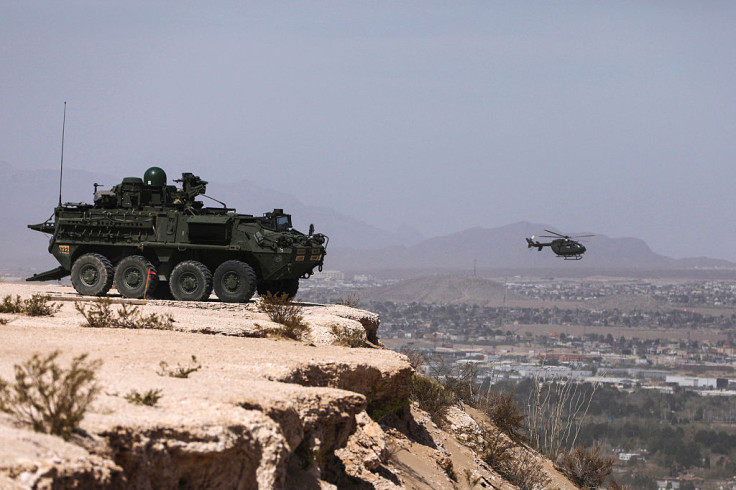
Donald Trump's order directing the Pentagon to use military force against drug cartels in Latin America has faced backlash from some, including Mexican President Claudia Sheinbaum.
In this context, The Intercept noted that more than 30 organizations—including humanitarian, immigrant rights, faith-based, veterans' advocacy, and drug policy reform groups—are urging U.S. lawmakers to reject Trump's plan, arguing it would put civilians at risk and destabilize diplomatic ties between the United States and Latin American nations.
Trump's order provides a formal basis for potential direct military operations at sea and on foreign soil. The report described it as the most aggressive step the Trump administration has taken so far in its fight against drug trafficking organizations.
In a letter sent to top congressional leaders, the organizations urged lawmakers to use every tool available to stop the administration from launching a military campaign in Latin America without public debate or accountability. They called on Congress to hold hearings on the scope and potential consequences of the proposed use-of-force policy and to block funding for any military action that hasn't been authorized or openly debated.
"Unilateral and hastily conceived military action could contribute to the considerable human rights abuses, criminal violence, and forced displacement already harming communities in Latin America," the letter reads. "Militarized approaches to countering narcotics trafficking have often backfired. They have inadvertently incentivized criminal groups to traffic smaller and more potent drugs to evade interdiction, acquire deadlier weapons, and expand their networks of corruption to protect their profits."
This isn't the first time Trump has suggested using U.S. troops to combat drug cartels in Mexico. In May, Trump confirmed he had offered military assistance to Sheinbaum, but she firmly rejected it.
"She is so afraid of the cartels she can't even think straight," Trump said after the exchange, adding that Sheinbaum "can't walk" because of cartel violence in the country.
It remains unclear what legal assessments, if any, have been issued by the White House, the Pentagon, the State Department, or the Justice Department's Office of Legal Counsel regarding Trump's order.
As the U.S. considers more aggressive and unconventional tactics, Sheinbaum was asked about the reported order during a news conference earlier this month. She told reporters the directive did not involve any military operations on Mexican soil.
"It has to do with their country, within the United States," she said. Sheinbaum dismissed the idea of a U.S. invasion outright, adding, "That is ruled out—absolutely ruled out—because we have made it clear in every call that such action is neither allowed nor part of any agreement."
She also said her administration had been notified about the executive order, but emphasized that "it had nothing to do with the participation of any military forces in Mexico."
Sara Haghdoosti, executive director of Win Without War, called the administration's reported actions "illegal, reckless and a betrayal of our democratic process" if done without congressional approval.
"We've seen this 'war on drugs' playbook before in the region, and it has failed time and again—fueling violence, displacing communities, and doing nothing to address the root causes of drug trafficking," Haghdoosti told The Intercept.
"What makes this even more egregious is that the Trump administration is pushing for war while slashing the very public health programs that save lives. People need healthcare, treatment, and support—not military posturing and strikes."
© 2025 Latin Times. All rights reserved. Do not reproduce without permission.











